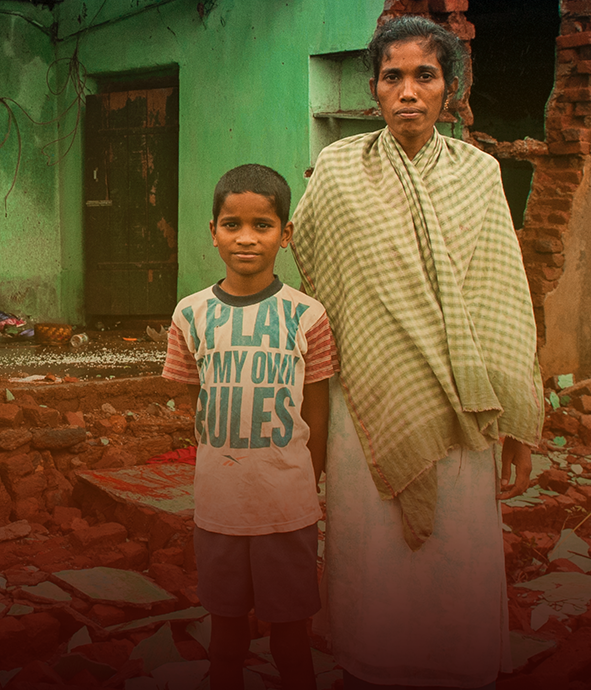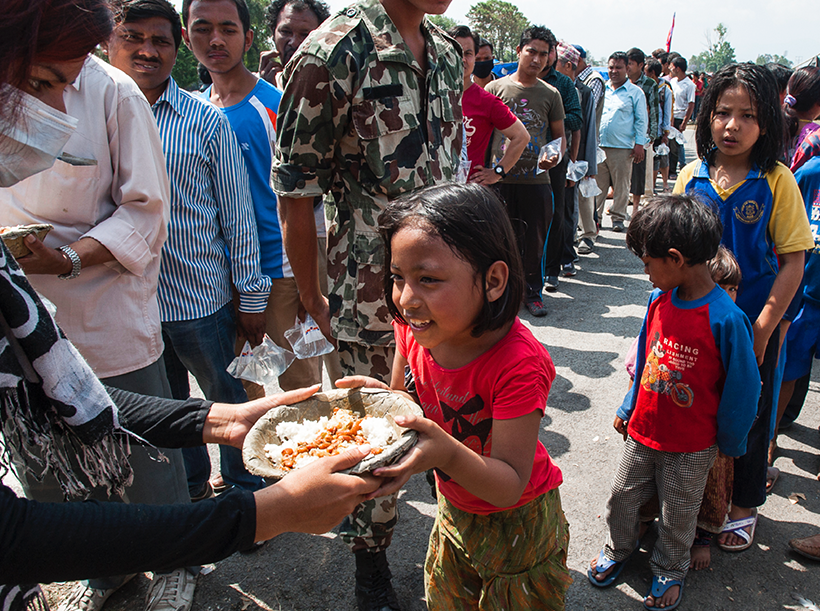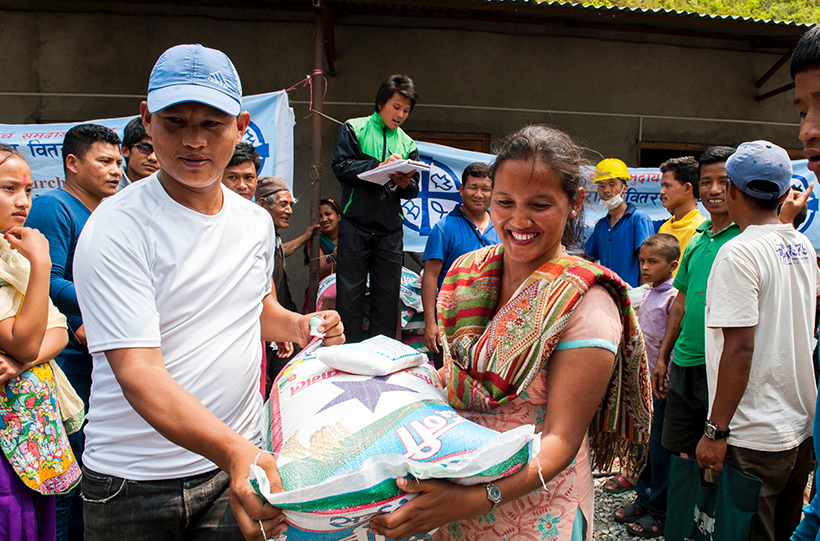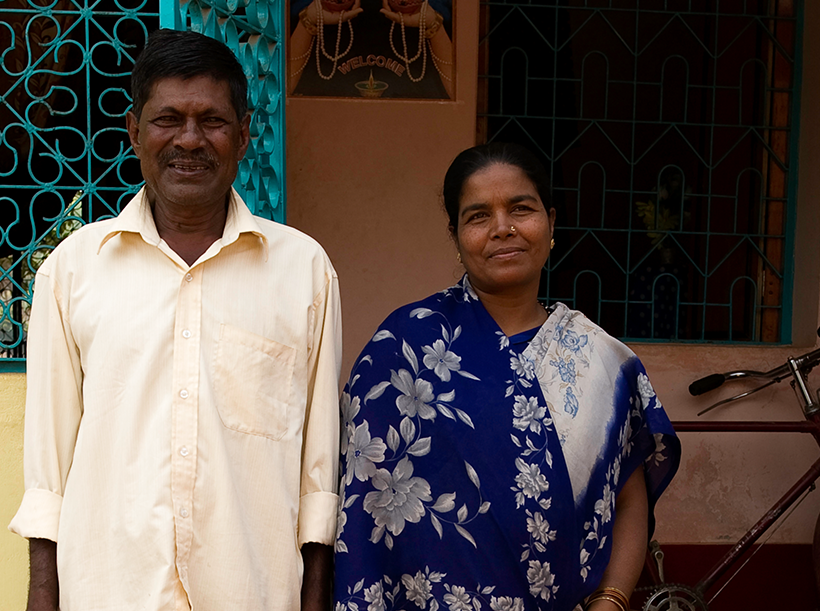Disaster Relief

Natural Disasters Intensify the Cycle of Poverty
Natural disasters are a major cause of poverty and a severe detriment to escaping their vicious cycle. When disaster strikes, it is the poor who suffer the most because they live on marginal lands and their houses are poorly equipped to cope with the impact of catastrophes. In the aftermath of a disaster they lose their homes, crops, and livestock and often have to flee with nothing more than the clothes on their backs.
Developing nations often suffer disproportionately from the effects of natural disasters because they have less developed infrastructure and emergency-response plans to reduce vulnerability. Natural disasters can have a life-altering impact on the poor in developing nations where they don't have the support they need to recover from crises.
Did you know
what we do
In times of disaster, we Respond, Recover, and Rebuild. We help the most vulnerable sections of society survive in the immediate aftermath and rebuild their lives and communities long-term. In recent times, we have helped hundreds of thousands of people affected by natural disasters in India, Sri Lanka, Nepal, Myanmar, and Bangladesh.
-

Respond
Immediately following a natural disaster — and sometimes while it is still ongoing — we respond as quickly and effectively as possible. Though transportation is often difficult in affected areas, we do everything we can to reach those most in need with life-saving assistance such as food, water, and shelter, helping victims survive the disaster. We work in close coordination with local government leaders to ensure that we provide the right aid to the right people at the right time.
-

Recover
We also aid in the recovery of those impacted by natural calamities by supplying them with dry ration items, clothing, hygiene supplies, blankets, mosquito nets, tarpaulins for tent construction, solar lights, and school supplies, enabling children to return to school promptly. Outbreaks of infectious diseases due to poor sanitation, a lack of safe drinking water, and contaminated food commonly follow natural disasters. To keep them protected from these diseases, we focus on delivering free medicines and medical care to displaced families.
-

Rebuild
Besides providing immediate relief, we also stay on to meet the long-term needs of disaster victims by helping them rebuild their lives and livelihoods. For instance, in the eastern coastal region of India, devastated by a super cyclone in 1999 and Cyclone Phailin in 2013, the Believers Eastern Church built hundreds of new houses for the victims.
major emergency responses
-
nepal earthquake, 2015
Tens of thousands helped with food supplies, water, medicines, blankets, plastic sheets to make tents, school supplies, mosquito nets and more.
Read More
-
cyclone hudhud, 2014
22.3 tons of dry ration supplies and drinking water distributed among the survivors of the cyclone in Andhra Pradesh
Read More
-
jammu & kashmir floods, 2014
29.6 tons of relief supplies, medicated mosquito nets, clothes distributed.
Read More
-
cyclone phailin, 2013
300 sturdy brick homes built for those who lost everything in Cyclone Phailin in Orissa; 30.8 tons of relief materials distributed
Read More
-
uttarakhand floods, 2013
20.6 tons of relief supplies, first aid kits and other essential items provided to victims of the flood
Read More
-
Andhra floods, 2013
Due to heavy rainfall the Godavari River rose to a dangerous level, devastating thousands of hectares of crops and completely submerging villages.
Read More
-
cyclone phailin reconstruction
Believers Church is rebuilding 300 homes for forgotten victims of Cyclone Phailin.
Read More
-
kerala-floods-2013
Abnormally heavy monsoon rains inundated Kerala in June 2013, leaving many areas flooded and making thousands of families homeless.
Read More
-
sri lanka flood relief work
Flooding and landslides triggered by monsoon rains hit Sri Lanka in May, leaving more than 200 people dead and over 600,000 displaced from their homes.
Read More
stories of hope
-
A Distressed Family Receives Timely Help to Tide Over Dire Straits
When a 7.8 magnitude earthquake struck Nepal on 25th April 2015, killing 9, 000 people...
Read More -
Prakash Lost Everything in a Deadly Cyclone, But Now He Has a House of His Own
Prakash Nayak was one among the thousands of those who had lost everything in Cyclone...
Read More
